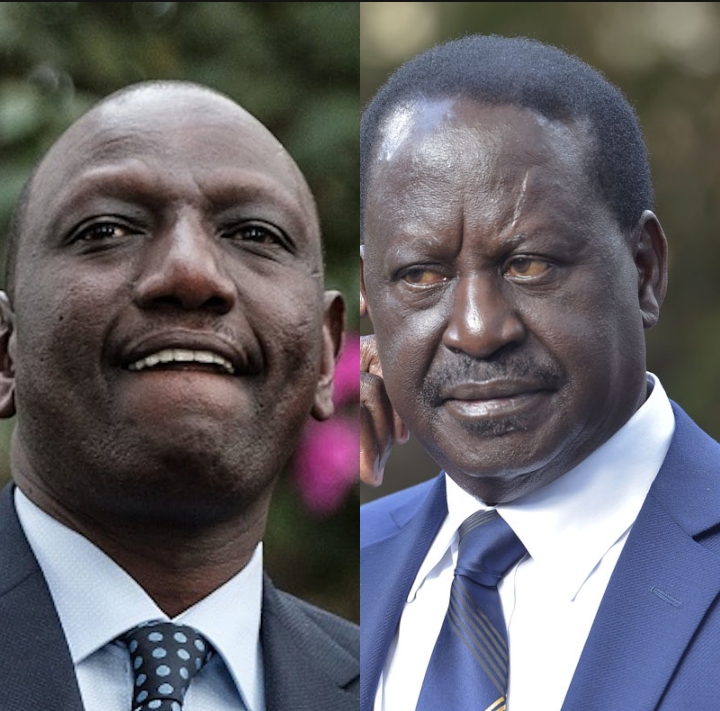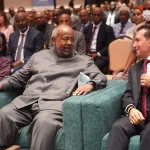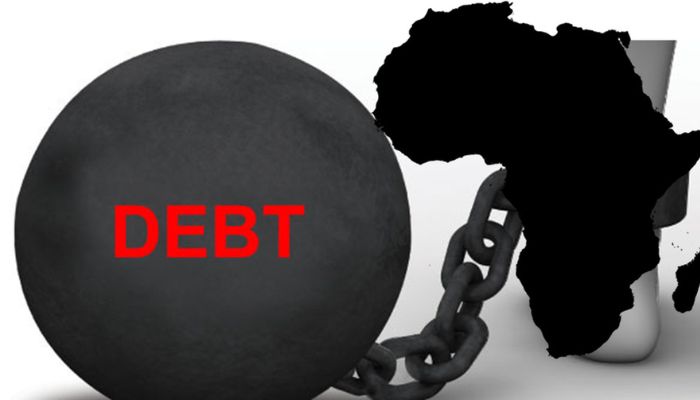Following the petition filed by the Kenya’s opposition presidential candidate, Raila Odinga, and his coalition party, Azimio la Umoja, to challenge the result of the August 9 election, the Supreme Court on Monday gave its verdict certifying the victory of William Ruto as the next president after Uhuru Kenyatta.
The ruling of the apex court has put to a stop, Odinga’s bid to invalidate the presidential election.
Join our WhatsApp ChannelChief Justice Martha Koome, leading other six Justices of the Supreme Court, read out a summary of the ruling and informed that the full verdict would be released in 21 days time.
Justice Koome read out the unanimous verdict of the apex court on nine-count charges.
In one of the charges, the petitioners had argued that the technology used by IEBC did not meet standards of integrity, verifiability, security and transparency to guarantee accurate and verifiable results.
Throwing out the claim, the Chief Justice said “Upon considering all the pleas, submissions and all the ICT scrutiny of the vote tallying and recounting report which fully examined the IEBC’s elections system, we are not persuaded by the allegation that the technology deployed by the IEBC failed the standard on integrity, verifiability, security and transparency to guarantee accurate and verifiable results.”
Another issue brought to the Supreme Court was whether the Chairman of the electoral body, Wafula Chebukati, acted in accordance with the constitution during the verification, tallying and declaration of results of the polls.
The court said “We find that the chairperson cannot arrogate to himself the power to verify and tally results of a presidential election to the exclusion of other members of the commission.”
“He does so only as a delegate of the Commission,” she added.
Talking about the four commissioners who rejected the result of the presidential polls, she said, “The four commissioners have not placed before this court any information or document to show that the results were compromised or that the results would have substantially differed from that declared by the chairperson.
“In the absence of any evidence so, violation of the Constitution and election laws, how can we upset an election in which the people have participated without hindrance as they made their political choices pursuant to Article 38 of the Constitution? To do this would be tantamount to subjecting the sovereign will of the people to the quorum antics of the IEBC. This we cannot do,” the Court ruled.
The petitioners had also asked the Supreme Court to find out if there were significant differences between the forms given to party agents and the forms uploaded to the portal of the electoral body.
The Supreme Court said they found no significant differences.
“No credible evidence was given to show forms given to agents were different,” Justice Martha said.
On whether there were unexplainable differences in votes cast for President and other elective positions, Justice Martha said “IEBC has proffered a plausible explanation for the vote differential citing category of voters who only vote for president such as prisoners and diaspora. There were insignificant number of stray votes whose combined effect cannot justify the nullification of the election.”
Other issues include if the president-elect, William Ruto had met the 50 per cent plus 1 threshold to be declared winner in the first round.
The Supreme Court ruled thus: “We find that no evidence was submitted to show that William Ruto did not attain the 50 per cent plus one vote requirement.”
The jurist added that rejected ballots cannot be used in the tally of this constitutional threshold.
Mr. Odinga had argued that that there was voter’s suppression through the postponement of some elections.
The Supreme Court ruled that “From the explanation tendered, we are satisfied that the postponement was occasioned by a genuine mistake which in our view could have been avoided had the IEBC staff been more diligent when they went to inspect the templates in Greece where the printing of ballot papers was undertaken.”
“The absence of any empirical data bars the court from finding that IEBC suppressed voting in Mr. Odinga strongholds,” the court added.
The petitioners have also asked the court if there are enough irregularities and illegalities to affect the outcome of the election result.
The Supreme Court ruled that “Consequently we find that the petitioners did not present a water-tight case to warrant the setting aside of the presidential election on the basis of having not met the threshold provided under Article 138 (4) (a) of the Constitution.”
Putting these verdicts together as well as other rulings of the Supreme Court today, Justice Koome and other six Justices of the Court ruled that William Ruto without doubt won the election.
“This is a unanimous decision of the court and we make the following orders.
“The presidential petition number E005 of 2022 as consolidated by presidential petition numbers E001, 2, 3, 4, 6, 7 and 8 of 2022 are hereby dismissed. As a consequence, we declare the election of the first respondent as President-elect to be valid under Article 43 of the Constitution.”
Raila Odinga had promised to accept the verdict of the Supreme Court before today’s judgment.


















Follow Us